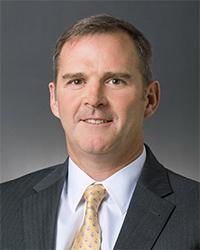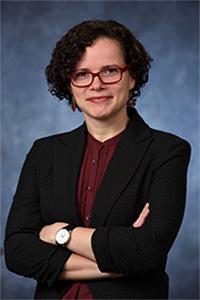The Science of Per- and Polyfluoroalkyl Substances Congressional Briefing
Thursday, September 26, 2019 at 3 PM ET
2322 Rayburn House Office Building
Congressional Sponsors: Rep. Paul Tonko and Rep. John Shimkus
The science of per- and polyfluoroalkyl substances (PFAS) is quickly evolving. New research results are improving our understanding of how best to address potential risks posed from exposure to this diverse class of compounds. As Congress seeks to craft policy solutions based on sound science, The Water Research Foundation (WRF) brought together the foremost experts in the science of PFAS to share recent scientific discoveries with members to allow the nation to more effectively protect human health and the environment.
View the livestream of the briefing on WRF's Twitter Account.
View the speaker presentations below:
- Charles Bott (PDF)
- Carla Ng (PDF)
Speakers
Peter Grevatt, Ph.D.
Dr. Peter Grevatt is CEO of The Water Research Foundation. As the leading water research cooperative, the Foundation funds, manages, and delivers scientifically sound research and innovative solutions on the most critical challenges facing the water community in the areas of drinking water, wastewater, stormwater, and recycled water (reuse).
Dr. Grevatt has over 30 years of experience leading the implementation of public health and environmental protection programs including significant national leadership experience in the water sector. Most recently, he served as Director of EPA’s Office of Ground Water and Drinking Water (OGWDW) where he was responsible for ensuring the safety of the nation’s drinking water supply through the development and implementation of national drinking water standards, oversight and funding of state drinking water programs, and the implementation of source water protection and underground injection control programs.
Prior to joining OGWDW, Dr. Grevatt served as Director of the Office of Children’s Health Protection, as Senior Advisor to EPA’s Administrator for Children’s Environmental Health, and has held leadership roles in EPA’s national hazardous waste and water quality programs. He received his M.S. and Ph.D. degrees in Basic Medical Sciences from New York University Medical Center and his Bachelor’s degree in Biology from Earlham College in Richmond, Indiana.
Charles B. Bott, Ph.D., P.E., BCEE
Dr. Charles B. Bott joined HRSD in 2009 and is the Director of Water Technology and Research. He manages technology innovation and research and development for HRSD’s 16 wastewater treatment plants (249 MGD combined capacity). Dr. Bott is also an Adjunct Professor in the Departments of Civil and Environmental Engineering at Virginia Tech and Old Dominion University. He was formerly an Associate Professor in the Department of Civil and Environmental Engineering at the Virginia Military Institute (VMI) and a consulting engineer with Parsons Engineering Science.
He is a two-time winner of the Water Environment Federation (WEF) Harrison Prescott Eddy Medal for outstanding contribution to wastewater principles/processes research, he was a previous member of the WEF Board of Trustees, and he is the past co-chair of the WRF and WEF Leaders Innovation Forum for Technology (LIFT) program. He has specific expertise in the areas of chemical and biological phosphorus removal, denitrification with alternative carbon sources, nitrification kinetics, nutrient recovery, deammonification/ anammox, biological treatment process modeling and design, and biogas conditioning. Important areas of focus are mainstream shortcut nitrogen removal and technologies for potable reuse.
Dr. Bott has a B.S. in Civil Engineering from the Virginia Military Institute, a M.S. in Environmental Engineering from the Johns Hopkins University, and a Ph.D. in Civil and Environmental Engineering from Virginia Tech. He is a fellow of WEF and a member of the Science and Technology Advisory Committee to the Chesapeake Bay Program Executive Council. Dr. Bott is a Professional Engineer in Virginia, a Board Certified Environmental Engineer, and a licensed Wastewater Treatment Plant Operator – Virginia Class I.
Carla A. Ng, Ph.D.
Dr. Carla Ng is an Assistant Professor in the Department of Civil and Environmental Engineering at the University of Pittsburgh, with a secondary appointment in Environmental and Occupational Health in the Graduate School of Public Health.
The research in Dr. Ng’s group focuses on the development of models for the fate of chemicals in organisms and ecosystems, at the intersection of chemistry, biology, and engineering. She has a particular focus on the development of mechanistic toxicokinetic models of PFAS in organisms and using protein-PFAS interactions to understand and predict their impacts across different PFAS structures and species of interest. She was recently awarded an NSF CAREER award to support her ongoing work on PFAS with particular application to molecular modeling and drinking water treatment. Other areas of research include tracking the evolution of complex chemical mixtures in the environment and exploring the role of the industrial food system on the fate of contaminants, with implications for human exposure.
She received her Ph.D. in Chemical and Biological Engineering from Northwestern University in 2008.
For more information on WRF's PFAS research, please visit our PFAS Topic Hub.


